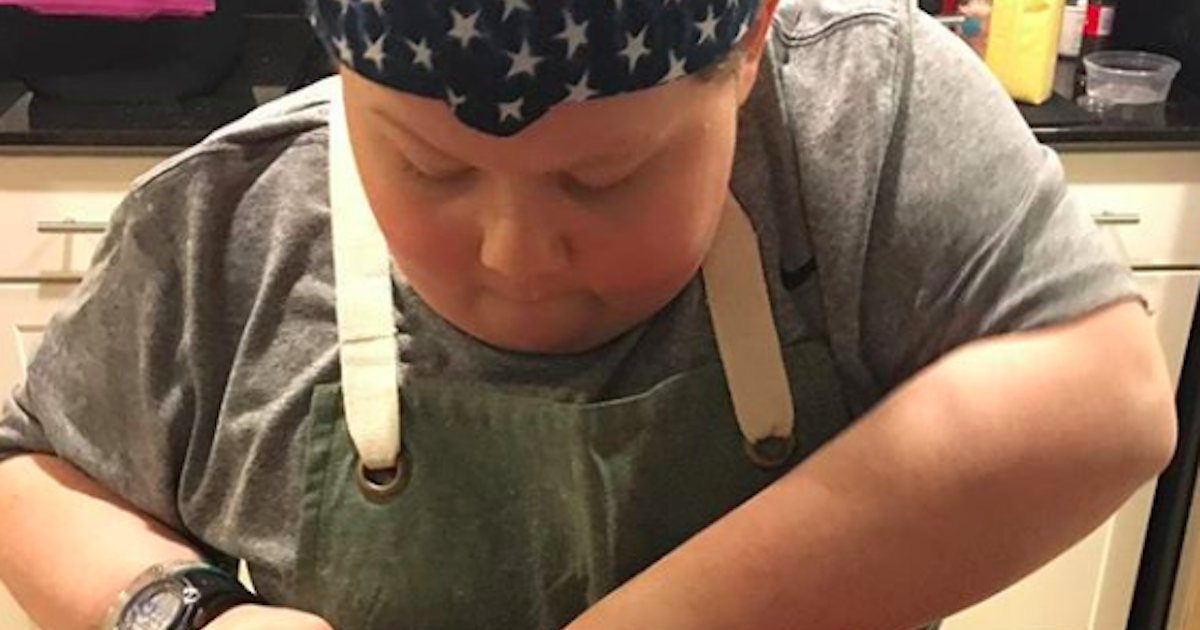Fuller Goldsmith's Cancer Journey
- Chopped Junior champion Fuller Goldsmith was diagnosed with acute lymphoblastic leukemia (ALL) at three years old, and by 16, has beaten it a fourth time
- Goldsmith enrolled in a Car T Cell clinical trial based in Seattle, and completed treatment a year ago
- Car T Cell therapies have shown enormous promise in two specific cancer fields, a leading expert tells SurvivorNet
Goldsmith, 16, was first diagnosed with acute lymphoblastic leukemia (ALL) when he was just three years old. He’s undergone treatment for three separate recurrences over the years, but his cancer had returned for a fourth time in 2018 which prompted him to enroll in a clinical trial. His oncologist urged him to enroll in an experimental therapy called chimeric antigen receptor (CAR) T-cell immunotherapy at Seattle Children’s Hospital.
Read Morehttps://www.instagram.com/p/CD5AC-OHJxz/
What is Acute Lymphoblastic Leukemia (ALL)?
ALL is a cancer of the bone marrow, in which the bone marrow makes too many immature lymphocytes a type of white blood cell. These blood cells are important to the immune system, seeing as they fight infections and attack bacteria and viruses. Signs of ALL typically present themselves as fever and unexplained bruising. Diagnosing ALL typically involves bone marrow and blood tests. Leukemia is the most common cancer diagnosed in young children, and three out of four pediatric cancer patients will be diagnosed with ALL.
Treatment options for ALL include chemotherapy, immunotherapy, and luckily, there have been a wide-range of immunotherapy drugs in cases of recurrences.
Childhood cancer survivor Justice Wexler breaks down the chemotherapy experience for ALL
Enrolling In Car T Cell Therapy
Car T Cell therapy has been approved by the Food and Drug Administration (FDA) for the treatment of young adults with acute lymphoblastic leukemia who have not responded to prior, and standard, forms of therapies as well as diffuse large B-cell lymphoma (DLBCL) a common form of Non-Hodgkins Lymphoma. It’s shown enormous promise in these two fields, and experts expect it’ll be approved for other types of cancer in the future.
Since this therapy is specific to two fields, finding a clinical trial can be tricky since most of them aren’t offered at standard cancer facilities. That being the case, an oncologist typically refers their patients to each trial.
Related: Clinical Trials Using CAR-T Cells Are Extremely Promising
"When a patient is diagnosed with difficult-to-control lymphoma [for example], they should be referred to a center that is equipped with cellular therapeutics and technology," Dr. Sid Ganguly, Deputy Director of Hematologic Malignancies and Cellular Therapeutics at the University of Kansas Medical Center, tells SurvivorNet. He also says that at the moment, most of these specialized centers are located at academic institutions.
Dr. Sid Ganguly explains how patients can find Car T Cell therapies
A Car T Cell Therapy means all hands on deck. According to Dr. Ganguly, the team behind these experimental therapies typically include physicians, nurses, nurse practitioners, pharmacists, financial counselors, and social workers so each participant can get the best care possible.
“It's a big team approach where holistically we take care of the patients and we take them through the whole process of identification to insurance approval … trial accrual, collection of the cells," Dr. Ganguly says. "And then post-treatment, taking care of the patient is also vitally important."
Learn more about SurvivorNet's rigorous medical review process.


